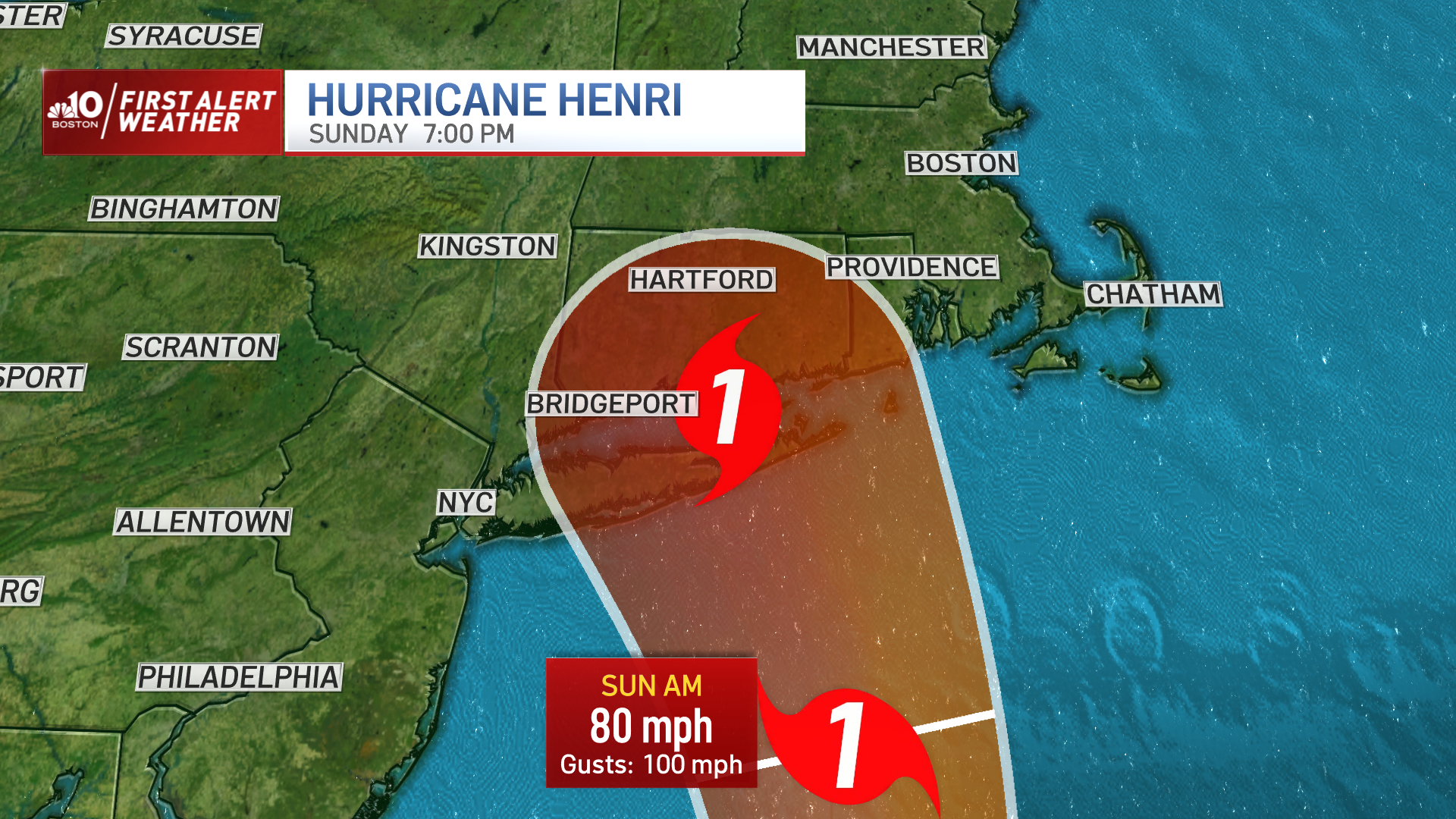Gov. Charlie Baker said Saturday that even though Massachusetts should "avoid the direct hit" from Hurricane Henri that was projected earlier in the week, residents still need to be prepared for strong winds, flooding and extended power outages.
"There's still the possibility of widespread power outages in just about every part of the Commonwealth due to high winds and heavy rain," the governor said during a press conference alongside public safety and transportation officials.
WATCH ANYTIME FOR FREE
>Stream NBC10 Boston news for free, 24/7, wherever you are. |
He stood by his prediction from Friday that between 100,000 to 300,000 customers could lose power as a result of the storm.
"We do have the potential for significant power outages across the Commonwealth, and people should plan accordingly on that," Baker said. "I think the statewide power outage issue is probably the biggest concern we have. When you have a storm of this size there may be power outages all over the northeast, which would put some real strain on the folks who are going to be restoring all that power."
Get updates on what's happening in Boston to your inbox. Sign up for our >News Headlines newsletter.
But he said the state appears to have dodged the worst of the storm. Central and western Massachusetts now appear to be the areas that will be hardest hit, while the Cape and Islands will see far less of an impact than originally anticipated.
On Friday, Baker had urged residents to stay off the roads, and he echoed that message again Saturday. But he said if people do need to go out, they should be careful.
Due to the new storm track, he said the state won't be calling up any additional National Guard assets. Instead, the 1,000 members of the guard who had already been called up will be deployed to western and central Massachusetts.
"It looks like we'll avoid the worst of what we were preparing for," Baker said. "While it looks like we'll avoid a direct hit, it's always a good idea to be prepared because predicting exactly where these will go is always an inexact science."
State transportation officials said there are no plans to place any restrictions on passenger vehicles on the Massachusetts Turnpike and other state highways, though restrictions on trucks and tandem trailers may be put in place depending on road conditions.
Logan International Airport intends to remain open and operational, but passengers are urged to check with airlines for potential cancellations due to the storm.
The MBTA is similarly urging people to check service schedules for any cancellations.
The Mattapan Trolley, Green Line D Branch and ferries won't run at all. The agency is concerned about possible flooding in tunnels as well as damage to overhead power lines from debris.
State-run beaches and waterfronts, campgrounds, pools, parks and other facilities closed Saturday in an effort to keep people safe.
Baker also urged residents to keep a close eye on the forecast.
"This thing may change again, in some respects," he said.
The storm’s latest track put it course to collide Sunday with a long stretch of coastline, with hurricane warnings extending from near the old whaling port of New Bedford, Massachusetts, across the luxurious oceanfront estates of New York’s Hamptons, to the summer getaway of Fire Island.
Intense winds and potentially dangerous tidal surges were expected as far east as Cape Cod and as far west as the New Jersey shore, and utilities warned ensuing power outages could last a week or even more.
Henri was veering a bit further west than originally expected, and if that track holds, it would have eastern Long Island in its bull’s-eye rather than New England, which hasn’t taken a direct hit from a hurricane since the deadly Hurricane Bob in 1991.
The Associated Press contributed to this report.




